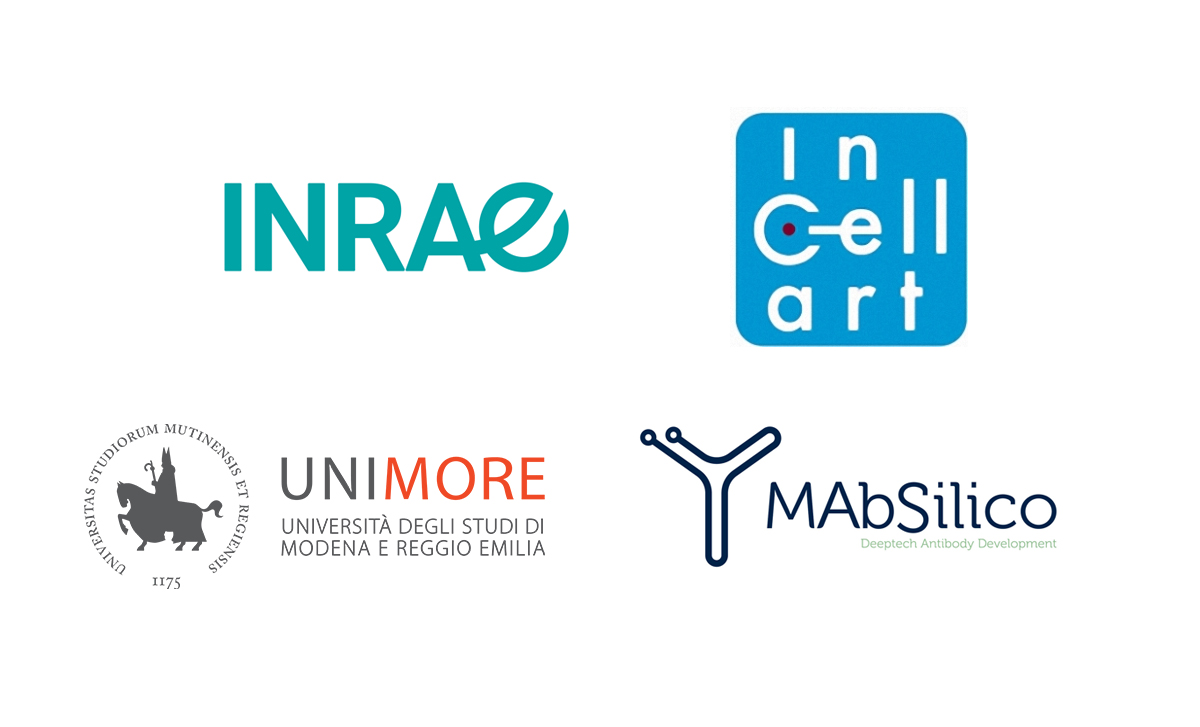 Accelerating Discovery for Non-Hormonal Contraceptives is one of the Grand Challenge programmes launched by the Bill & Melinda Gates Foundation for the coming years. A research project has just started in the context of this programme, having received funding worth $1.8 million. The project is being managed by a consortium led by INRAE and involving IN-CELL-ART, a French biotechnology company specialised in nanotransporter technologies called NANOTAXI®, the Italian university UNIMORE , and MAbSilico, an INRAE start-up that proposes software based on artificial intelligence technologies for the development of antibodies. The aim is to design biological products based on antibody fragments to block ovulation and thus enable non-hormonal contraception that causes fewer adverse effects.
Accelerating Discovery for Non-Hormonal Contraceptives is one of the Grand Challenge programmes launched by the Bill & Melinda Gates Foundation for the coming years. A research project has just started in the context of this programme, having received funding worth $1.8 million. The project is being managed by a consortium led by INRAE and involving IN-CELL-ART, a French biotechnology company specialised in nanotransporter technologies called NANOTAXI®, the Italian university UNIMORE , and MAbSilico, an INRAE start-up that proposes software based on artificial intelligence technologies for the development of antibodies. The aim is to design biological products based on antibody fragments to block ovulation and thus enable non-hormonal contraception that causes fewer adverse effects.
In this collaborative project, the INRAE research team, which specialises in studying the membrane receptors that control reproduction, is focusing in particular on the contraceptive mechanism that blocks the molecular regulators of ovulation. Antibody fragments that target receptors present in ovarian cells can very selectively modulate the effects of natural hormones within these cells. Studies will aim to develop antibody fragments that can selectively block ovulation without disturbing the endogenous production of steroid hormones. These antibody fragments will then be modified to produce sufficiently durable effects to guarantee contraception, while ensuring the reversibility of the ovulation blockade after treatment is discontinued.
The software platform developed by MAbSilico is being used for the selection, characterisation and optimisation of antibody fragments that target the regulators of ovulation. The artificial intelligence technology developed by this biotech firm enables the digitisation of antibody discovery, accelerating and securing this critical step.
Best antibodies will be selected in vitro by UNIMORE, where they will be tested using human ovarian cells. This working package is fundamental to ensure the functionality of antibodies in humans and relies on the expertise of its Unit of Endocrinology in hormonal regulation of the reproductive functions.
The antibody fragments thus optimised will then be tested in vivo in mice by administering synthetic noninflammatory mRNA coding for this new class of biologics. This will trigger the production of antibody fragments by the mouse’s muscle fibres, their secretion into the blood and finally their action on the ovaries. This technology, called NANOTAXI®, will thus make it possible to avoid the bioproduction of antibody fragments, which is cumbersome, expensive and lengthy. The most promising antibody fragments will then be tested non-invasively in ewes.
About INRAE
Created on January 1, 2020, the French National Research Institute for Agriculture, Food, and Environment (INRAE) is a major player in research and innovation. INRAE carries out targeted research and resulted from the merger of INRA and IRSTEA. It is a community of 12,000 people with 268 research, experimental research, and support units located in 18 regional centres throughout France. Internationally, INRAE is among the top research organisations in the agricultural and food sciences, plant and animal sciences, as well as in ecology and environmental science. It is the world’s leading research organisation specialising in agriculture, food and the environment. INRAE’s goal is to be a key player in the transitions necessary to address major global challenges. Faced with a growing world population, climate change, resource scarcity, and declining biodiversity, the institute is developing solutions that involve multiperformance agriculture, high-quality food, and the sustainable management of resources and ecosystems. www.inrae.fr/en
